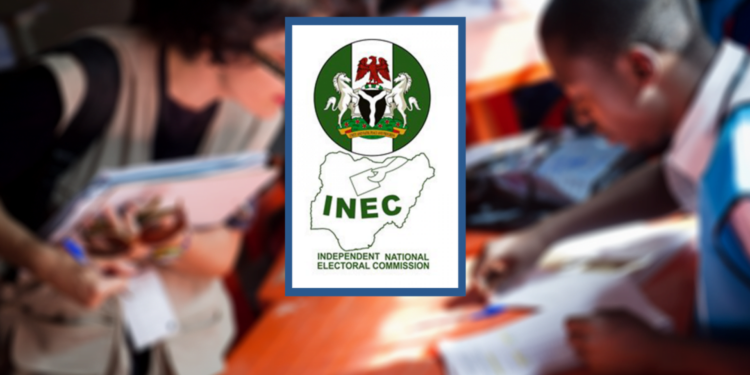The Independent National Electoral Commission and Nigerian Correctional Service (NCoS) have reiterated their commitment to give voting rights to inmates in correctional facilities across the nation.
The chairman of INEC, Professor Mahmood Yakubu and Controller-General of NCoS, Sylvester Nwakuche, gave this indication during a courtesy call at the commission’s headquarters in Abuja yesterday.
Yakubu asked his guest to join him in seizing the opportunity of the ongoing electoral reform for a clear legal provision that would specifically cover citizens serving time in correctional facilities to be able vote.
He also said they had the immediate task to engage with the National Assembly for a clear legal provision on inmate voting.
“As you are aware, election is a process governed by law. Working together, we can seize the opportunity of the ongoing electoral reform for a clear legal provision that will specifically cover citizens serving time in our correctional facilities.
“Doing so will also clarify the provision of Section 12(1)[e] of the Electoral Act 2022 on voter registration, a precondition for voting in elections, which restricts the exercise to a Nigerian citizen who “is not subject to any legal incapacity to vote under any law, rule or regulations in force in Nigeria”.
“There are various interpretations as to whether this provision relates to inmate on death row, those serving life sentence or those convicted for treason. Our immediate task is to engage with the National Assembly for a clear legal provision on inmate voting. Thereafter, we can address the specific issues that may arise in the course of implementation,” Yakubu said.
He acknowledged the judgements of the Federal High Court in Benin delivered on December 16, 2014 and the Court of Appeal, also in Benin in December 2018 pertaining to the right to vote by five plaintiffs awaiting trial.
“Based on the combined provisions of Article 25 of the International Convention on Civil and Political Rights (1966) and Section 25 of the Constitution of the Federal Republic of Nigeria 1999 (as amended) on citizenship, the court affirmed the rights of plaintiffs who were inmates awaiting trial to vote in elections.
“However, the judges ruled that the right to vote is only excisable when asserted as it is a choice to be exercised voluntarily by a citizen and not a duty to be imposed by force of authority.
“You may recall that in recognition of this situation, the Commission had several discussions with the correctional service on how inmates who wish to register and vote in elections can do so.
We even set up a joint technical committee to review all the issues involved and advise on the way forward. You availed us of data on the locations and types of federal correctional facilities nationwide.
“You also provided us with statistics on the various categories of inmates, the majority of whom are on remand awaiting trial and who may actually be registered voters. For our part, we raised the issue of access to the correctional facilities for voter registration, creation of polling units and voter education,” Yakubu added.
Nwakuche noted that
over 81,000 of inmates out of which over 66% are awaiting trial persons who are presumed innocent but have proven guilty have rights including voting.
“I’m here this morning to discuss with the INEC Chairman to see how we can, if possible, extend some of these rights to these inmates. And this right is about voting rights. I’m here following a court ruling on the voting rights of inmates in Benin that also escalated up to the appeal court and there was judgment on it.
“Recently, there was also a National Assembly resolution trying to let us know that these people have inalienable rights to vote. And for the mere fact that they are in incarceration, we should not deny them the right to vote because they are citizens of this great country. I’m here, Chairman, sir, to see how we can escalate these decisions.
“Look at the litigations, look at the grey areas, look at the technical aspects of this court ruling so that we will be far more comfortable. That is why I’m here to see how we can work together, even if it is not now but in the nearest future to grant these inmates the right to vote…,”he said.



